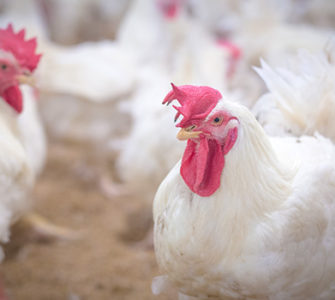What’s causing ‘woody breast’ in poultry?
A condition known as “woody breast” is puzzling US poultry scientists investigating why breast-muscle tissue from some broiler flocks is hard and tough instead of tender and juicy.
“Nobody wants to eat a tough chicken,” says Don Waldrip, DVM, of Zoetis Inc.
He thinks the condition, which is more prevalent in older broilers raised to 9 pounds or more, may be linked to growth rate.
Posted on May 28, 2015
















